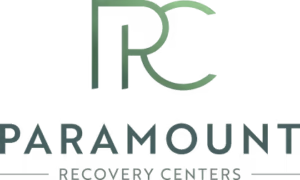With this knowledge, clients can build confidence in their ability to stay sober even after completing treatment programs such as detoxification or residential care. Ultimately, engaging in therapeutic activities during recovery from addiction can be extremely beneficial for long-term sobriety success.
What Is the Importance of Therapy for Drug and Alcohol Addiction?
Drug and alcohol addiction can be an incredibly destructive force in someone’s life. It not only affects the individual struggling with it, but also those closest to them. Fortunately, therapy is a powerful tool that can help individuals turn their lives around and overcome addiction. Through therapy, individuals learn how to identify triggers for their substance use, develop healthier coping skills for dealing with stressors or difficult emotions, and create a plan for living sober moving forward. Therapy provides invaluable support during this challenging recovery journey from drug and alcohol addiction. Therapy is a safe space for individuals to discuss their experiences and find the guidance they need to make lasting changes. A therapist can help them process underlying issues or unresolved trauma that may have contributed to their addiction, as well as develop healthier thought patterns around drug and alcohol use. Through therapy, people can learn how to understand their motivations for using, identify triggers for their cravings, and develop a plan of action for avoiding and managing temptations. In addition to helping individuals cope with the mental aspects of addiction, therapists can also offer guidance in terms of creating a support system, developing coping skills to deal with stressors or difficult emotions, finding reliable sources of sober housing or employment, and other resources to help them live a healthier, more sustainable lifestyle.
What Is the Best Therapy for Substance Use Disorder Treatment?
The best therapy to utilize during substance abuse treatment programs varies from person to person. Different forms of therapy can be effective depending on the individual’s unique situation and needs. However, evidence-based therapies have been proven to be most effective in treating substance abuse and addiction, including cognitive-behavioral therapy, motivational interviewing, and contingency management, to name a few. Furthermore, group therapy, dialectical behavior therapy, and mindfulness-based therapies are all common forms of evidence-based therapies that positively impact the recovery success of those battling addiction. The most effective treatment may involve a combination of therapies tailored to the individual’s needs. It’s essential to work with a qualified therapist or treatment provider to develop a treatment plan that is right for each person.
Using Psychotherapy to Aid in Recovery From Addiction
Psychotherapy, or talk therapy, is an effective treatment for aiding in addiction recovery. Several types of psychotherapy, including cognitive-behavioral therapy (CBT), dialectical behavior therapy (DBT), motivational interviewing, and psychodynamic therapy, can be used to treat addiction.
Request a 100% Confidential Callback
If you or a loved one are struggling with substance abuse and mental health problems, contact our drug and alcohol rehab center in the Greater Boston area to talk confidentially with an addiction specialist. For immediate help, call (978) 878-3677 or fill out the form below, and we will get back to you as soon as possible.
"*" indicates required fields
In psychotherapy sessions, individuals work with a trained therapist in a safe and supportive environment to explore their emotions, and thought patterns and develop coping strategies to manage triggers and prevent future relapse. The different types of psychotherapy focus on changing negative thought patterns, regulating emotions, and exploring unconscious thoughts contributing to addiction. A qualified therapist or substance abuse treatment provider can help determine which type of psychotherapy best suits each individual’s needs.
Types of Therapy Used to Treat Addiction and Mental Health Disorders
There are several main types of therapy used to treat addiction and mental health disorders. Some of these have been discussed below:
Cognitive-Behavioral Therapy (CBT)
Behavioral therapies can play a major role in drug addiction treatment. CBT is a therapy that helps individuals identify and change negative thought patterns and behaviors that contribute to addiction and mental health issues. It focuses on developing coping strategies to manage triggers and prevent relapse. For instance, individuals may believe that they need drugs to feel happy or that they can’t handle stress without alcohol. In CBT, these beliefs are identified and replaced with more positive and accurate thoughts, such as finding other ways to manage stress or recognizing that drug use has negative consequences.
Dialectical Behavior Therapy (DBT)
DBT is a type of therapy that helps individuals regulate their emotions, develop interpersonal skills, and tolerate distress. It can be particularly effective for individuals with borderline personality disorder and other mental illness. DBT for addiction recovery typically involves individual therapy, group therapy, and skills training. During individual therapy, a therapist helps the person identify and modify negative patterns of thinking and behavior that contribute to addiction. In group therapy, the person learns how to interact with others positively and develops new skills.
Motivational Interviewing
This therapy helps individuals find the motivation to change their behavior by exploring their values, goals, and aspirations. It is often used to treat addiction and can be used in combination with other therapies. The objective of MI is to encourage the individual to develop intrinsic motivation for change, rather than relying on external pressure or force. By examining the person’s values, beliefs, and goals, the therapist helps build the individual’s self-esteem and confidence in their ability to change.
Psychodynamic Therapy
This type of therapy focuses on exploring unconscious thoughts and emotions that may contribute to addiction and mental health disorders. It can help individuals gain insight into the underlying causes of their condition. The therapist helps the person develop healthier coping methods for emotional and psychological stressors. By identifying and exploring the underlying causes of their addiction, the person can develop new strategies for managing their emotions and addressing the underlying factors contributing to their addictive behaviors.
Family Therapy
Family therapy involves working with a therapist to address the impact of addiction and mental health disorders on the individual and their family. It can help improve communication and relationships within the family and support the individual’s recovery. In family therapy for addiction recovery, a therapist works with the individual and their family members to explore how addiction has affected their family unit. The therapist helps family members understand each other better and identify communication patterns or behaviors that may contribute to addiction. This therapy also focuses on improving communication and developing healthy relationships within the family. Family members are encouraged to express their emotions and concerns in a supportive environment and work together to create strategies to support the individual in their recovery. Overall, many types of therapy can effectively treat addiction and mental health disorders. It is important to work with a qualified therapist or treatment provider to determine which type of therapy best suits each individual’s needs.
Contingency Management
Contingency management is a therapy for addiction recovery that uses rewards to motivate individuals to maintain sobriety. It is based on the principles of behaviorism, which suggest that behavior can be changed through rewards and punishment. Individuals who participate in contingency management receive incentives, such as vouchers or prizes, for producing drug-free urine tests. The rewards increase in value as the individual continues to maintain sobriety. This type of therapy is effective for treating various substance use disorders and is often used with other forms of addiction treatment. Contingency management provides immediate reinforcement for positive behavior and can be particularly helpful for individuals who have not succeeded with other forms of addiction treatment.
What is The Length of Therapy for Addiction Recovery?
The duration of therapy for addiction recovery is not fixed and can vary depending on different factors such as the type, severity, level of addiction, and the chosen therapy type. It can range from a few sessions to several years, with brief interventions lasting only a few sessions and inpatient or residential treatment programs lasting up to six months or more. After completing a formal treatment program, individuals may attend therapy sessions for several months or years to prevent relapse and maintain sobriety. The length of therapy is individualized and depends on factors such as progress made during treatment and the presence of any co-occurring mental health disorders.
Success Rates of the Therapeutic Techniques
The success rates of therapeutic techniques for addiction recovery depend on various factors, including the severity of the addiction, the individual’s motivation to change, the type of addiction, and the quality of treatment available. Different techniques, such as CBT, motivational interviewing, 12-step programs, medication-assisted treatment, and family therapy, have reported success rates ranging from 5% to 90%. However, success rates can vary widely depending on the individual and the treatment program, and addiction recovery is a lifelong process that often requires multiple attempts and a combination of treatments to achieve long-term success.
Get Answers to Your Questions Now
Seek Help
Addiction is a chronic disease characterized by compulsive drug or alcohol abuse despite adverse consequences. There is no cure for addiction, but a combination of therapy, medication, and support groups can help individuals manage their addiction. The primary goal of addiction therapy is to help individuals quit using drugs or alcohol, cope with withdrawal symptoms, and prevent relapse. Various therapy types, such as CBT, motivational interviewing, dialectical behavioral therapy, and group therapy, can be used to achieve these goals. medication-assisted treatment and support groups like AA or NA can also be helpful. It is important to note that addiction is a lifelong condition that requires ongoing treatment and support, and there is no one-size-fits-all approach to treatment. Treatment should be personalized to the individual’s needs and goals. If you or someone you know is suffering from addiction, it is essential to get professional help to avoid any further complications. Feel free to reach out to us at any



